|
My fiancé and I have been planning our wedding since we got engaged in February 2023, and we are soon approaching our June wedding. We are so excited to begin our lives together and get married! As we were making important decisions for our wedding, we knew that it was important for us to have a Catholic ceremony in a church. We are both very active in our faith and felt that our wedding would not be complete if we chose to have a secular ceremony. We have found, through our wedding preparation process, that our faith has grown together. As we are planning our wedding, we have begun traditions that we would like to carry onto our own family one day. For example, always saying Grace before meals, making sure to attend weekly Mass, and being more vocal about our faith and our beliefs. We did most of these things before we got engaged, but now, it feels like these small tasks are the building blocks for the foundation of our family. In the Archdiocese of Washington, a couple must attend a marriage preparation course that is held by the Archdiocese. To be honest, we were not exactly thrilled to have to attend, as we are fairly active Catholics, and we had been dating for close to five years before getting engaged. We felt that we had all the difficult conversations before we got engaged, such as finances, living situations, and children. But, we knew that it was a task that we had to complete, so we obliged. We spent two full days in these sessions, and while there were a handful of sessions that felt less applicable or engaging to us, we did end up enjoying the course. As both of us lost all our grandparents before the age of 25, it was really great to hear from the older couples on their experience through their own marriages. It is not something that I would have thought to ask my grandparents before they passed when I was in high school, so hearing from the older perspectives was a joy. We loved hearing about how they have made their faith a priority throughout their lives, during good times and bad, and how their faith is the foundation of what makes their marriage so successful. It also made me think “Wow, that is (God willing) going to be us someday; what do we want our marriage to look like now, at the beginning, so we can get to this point someday?” Another part of our marriage preparation has been completing the FOCCUS Survey. Both of us filled out the questionnaire separately, and in a meeting with our priest, we went over the responses to see where we agreed and disagreed. It was insightful as we really had to think about our partner and about their qualities - good and bad. We did agree on a lot of the same things, and those where we disagreed, we were able to discuss our viewpoints and come to an understanding as to why we answered one way or another. It was a good affirmation of our relationship and values, and that while similar, we can have different opinions, but as long as we are in understanding of them, and respect each other, it is good to think differently. We have enjoyed our marriage preparation process and really have felt that it has brought us closer together in our relationship with each other, and also in our relationship with the Lord. As we are in the final stretch before our wedding, please pray for my fiancé and I as we enter into our marriage covenant together!
0 Comments
When the COVID-19 pandemic began and so much seemed outside of my control, I turned to prayer as a source of comfort, nourishment, and stability. Favorite Catholic podcasts, powerful homilies, Gospel-inspired music, Scripture reading, and devotions like the Rosary kept me grounded in a higher reality than the confusing, dark, and humbling one I faced. Perhaps I felt the need to overcompensate in a time when I couldn’t physically receive the Eucharist. The lack of physical Communion meant I searched for spiritual, mental, and emotional communion with the Lord in other ways I found fruitful. In this way, times of trial can bear much fruit—suffering sharpens our eyes to the eternal and true. It is sobering. Surrendered to God, suffering can be the most direct path of conversion and redemption. As the pandemic continued and I was able to adjust to my new “normal,” my sense of emergency slowly began to fade. I found ways to be comfortable and to continue meeting needs like friendship, worship, and rest. No, everything was not as it had been. Life was still a shadow of its former glory. And yet, I had found ways to cope. As this trajectory continues with the reopening of society in many ways, I have begrudgingly found that my deep prayer life has slowly faded. Becoming more of a checklist than a time of renewal, my prayer time is filled with distraction and noise. I’ve come to realize that I would rather fill my time with the noise—albeit good noise—of a Catholic podcast or homily instead of turning everything off and filling my time with God Himself. I’m more comfortable hearing others talk about God and their spiritual insights than talking to God. I’m also more comfortable talking AT God than WITH Him. I have a lot to say, but am not spending time listening or receiving. Finally, once I do settle down to pray, my tasks, chores, and rambling thoughts bombard me. My prayer time is filled with noise and distraction. Why is it easier for me to scroll through a newsfeed of beautiful images and consumer goods than to thumb through my Rosary meditatively? Why is it easier to respond at all moments to the latest texts in a never-ending group thread than it is to respond at all moments to the promptings of the Holy Spirit? Why is my heart more easily captured by the words of the media than by the Word of God? For perhaps the millionth time, I must face again a thorn in my side that prevents me from greater holiness: noise. “Noise, the grand dynamism, the audible expression of all that is exultant, ruthless, and virile—Noise which alone defends us from silly qualms, despairing scruples, and impossible desires,” says the demon Screwtape in C.S. Lewis’ classic, The Screwtape Letters. He continues, “We will make the whole universe a noise in the end. We have already made great strides in this direction as regards the Earth. The melodies and silences of Heaven will be shouted down in the end.” Lately in my life, it seems like Screwtape and his friends are succeeding. I’m having trouble hearing the melodies of Heaven amidst all the noise. And can’t we all admit to knowing this deep down—that much of our lives is an endless stream of noise and distraction threatening to drown out the still small voice inside? I reflect on these things once again while reading a powerful book and meeting virtually with other women--This Present Paradise: A Spiritual Journey with St. Elizabeth of the Trinity. Elizabeth, through the author Claire Dwyer, is shaking me from my complacency and passing through the distractions to help resurrect my heart. This young French Carmelite nun who lived over a hundred years ago mastered the interior life of prayer and encourages all to do the same—regardless of their vocation in life. I know I am called to more than what I’m filling myself up with; an hour of scrolling through items on sale or watching a home renovation show will never compare to fifteen minutes of virtual Adoration or a few decades of the Rosary. Any time consecrated to God is not returned unsanctified. In times of greater stability, comfort, or complacency, I’m also reminded of the Scripture passage about the wise virgins at the gate. We are called to fill our lanterns with oil as we await the Bridegroom so that we will be prepped and ready for His return. I have personally found that my preference for news feeds, shows, or internet browsing fills my lantern with something akin to water rather than oil, and so I am using this season of Ordinary Time to recommit to a quieter, more fruitful prayer life. Below are a few things I have found helpful for overcoming spiritual distraction and ensuring daily prayer:
As the world continues to reopen in ways that give us hope, I invite you to reflect on your prayer life throughout the pandemic months and set goals for yourself during this season of Ordinary Time. In the end, may we find that the melodies and silences of Heaven triumph over the noise of the world. 7/13/2021 Creating Memories: A Grandfather Reflects on His Role During the Year of St. JosephRead NowWe come in all colors, shapes, sizes. We come with many different names: Papa, Gramps, Granddaddy, Baba, Nonno or maybe even Skipper. The one thing we all share is our unconditional love for our grandchildren. One of my earliest memories of my grandfather Tony (Gramps) was sitting on his lap as he prayed the rosary. As l tried to pull it from his hands, he clutched his beads even tighter. I guess that was my first memory of prayer. When my wife and I had our first child, Gramps told me the 3 greatest things a grandfather can give his grandchildren are love, spoiling them rotten, and memories. I cherish the memories of Gramps to this day: sleeping over at my grandparents’ house, having my picture taken with him at my First Holy Communion, cutting his grass and him giving me a quarter, him asking me to sit next to him at his and grandma’s 40th anniversary dinner, and even taking my then-fiancée when I went to shovel his snow. These are some of the memories he created for me. My dad and father-in-law enhanced the grandfather experience for me as I watched them with our children and their cousins. Birthday parties, school plays, receiving the sacraments or graduations, grandpas were always there. At his grandkids’ Confirmations, my father-in-law would say “Another soldier for Christ”–adding more memories to my collection. l wonder what memories Jesus had of His grandfathers Joachim (the Patron Saint of Grandfathers) and Jacob, St. Joseph’s father. Did He pull on their prayer beads, sleep over at their houses, sit next to them at special occasions? As it becomes my turn to make memories, I pray to St. Joseph that my 4 precious grandchildren will have memories: a picture of us at their First Holy Communion, attending Mass together, me walking them to school or picking them up after school (well maybe after the pandemic), me telling them a corny Papa joke, them giving me a running hug, me spoiling them rotten or maybe even them tugging on my rosary. The aforementioned men have set the bar very high; it is my goal to follow in their footsteps. I remain extremely grateful every day that l have been entrusted to be the Papa of Mabel, Anna, Teddy and Lucy. In the year that Pope Francis has declared the Year of St. Joseph, my best hope would be that St. Joseph gives me the strength to teach them the ways of the Gospel and lead them down the path towards Christ. To me St. Joseph was like an unsung hero. His devotion must have been unwavering. Asked to be the earthly father to Jesus and husband of Mary, WOW!! what a responsibility. Teaching Jesus his trade as a carpenter, teaching Him to pray, preparing Him for manhood, things that many may overlook. St. Joseph simply did the things asked of him by God. God’s love shows through in picking Joseph for this oh so important role in Jesus’ life and the life of the Church. The more I read about St Joseph, the second J of the JMJ (Jesus, Mary and Joseph) I wrote at the top of my school papers long ago, the more awesome I think he is. He did so much without questioning his role. Thank you, St Joseph, for being an inspiration and guiding light as I navigate the waters of being a grandfather. St Joseph, pray for us (especially us grandfathers). To learn more about the Year of St. Joseph and our Fatherhood Series, please click here.
“Remember the days past when, after you had been enlightened, you endure a great contest of suffering. At times you were publicly exposed to abuse and affliction, at other times you associated yourselves with those so treated. You even joined in the sufferings of those in prison and joyfully accepted the confiscation of your property, knowing that you had a better and lasting possession. Therefore, do not throw away your confidence, it will have great recompense. You need endurance to do the will of God and receive what he has promised. ‘For, after just a brief moment, he who is to come shall come, he shall not delay. But my just one shall live by faith, and if he draws back I take no pleasure in him.’ We are not among those who draw back and perish, but among those who have faith and will possess life.” -Hebrews 10:32-39 We are living in an extremely tumultuous time. For over a year, a virulent sickness has swept over the world and caused havoc with our health, our economies, and the very way we relate to one another. It has separated us from friends, co-workers, extended family, and our church community, to name a few. In battling its transmission, we have been forced into isolation—severely limiting gatherings, celebrations together, and even sharing hugs. We have been stretched beyond our normal mode of living and the equilibrium of our lives has been disturbed, with no end clearly in sight. On top of all this, we have experienced political and social unrest – polarized groups rising against one another, causing great division instead of building unity. For any individual, these circumstances could easily defeat us and have us succumb to despair. I think of the Marty Haugen song many of us sing every year during Advent: “For you, O Lord, my soul in stillness waits, truly my hope is in you.” It resounds in my mind and heart as we traverse through such unsettling circumstances. Amidst all the unknowns and unrest, I have witnessed a beautiful vision that overrides all the devastation of the circumstances we are in. I have seen people sacrifice to care for others and people coming together to celebrate the joy of life in trying situations. I have witnessed God living and walking among us through the selfless individuals choosing to stand tall in faith and do all things in love. As Christians we are taught “God is love.” We were created out of love, for love. We are part of God’s great creation and we belong to Him. He guides, instructs, and protects us always. What a magnificent testament to hope in! We pray in our Creed: “I look forward to the resurrection of the dead and the life of the world to come.” This is part of what we profess at Mass before we enter into the liturgy of the Eucharist – which is the source and summit of our faith. We receive the Body, Blood, Soul and Divinity of our Lord to nourish us in body and spirit. This profession of faith, this gift of communion, allows us to walk through all the adversities of life as joyful people who understand our hope lies not in this world but in heaven, forever. This living hope comes from being nurtured by the stories from Scripture, being taught prayers and devotions, receiving the sacraments of Reconciliation and Eucharist frequently, singing hymns of praise and thanksgiving, and practicing acts of kindness daily. What an ironclad defense we have against any evil that would afflict our body or soul! How beautiful it is that as Christians we can be united together in faith wherever we are. This is how I have remained steadfast in hope and overcome fear during these trials that continue to badger us. Surrounding myself with pictures of the Holy Family, the saints, the crucifix, listening to Christ-centered music, praying novenas and prayers, attending Mass often, and sitting in the quiet and listening for God to speak to me are all ways I actively participate in being a person of hope. Even more simply, just keeping my home clean and neat makes it a peaceful sanctuary where I can experience God’s presence. I have no control over the things of this world that loom large over me, but that is okay. As long as I adjust my spiritual armor and remain grounded in Christ, I have every reason to walk in hope, joyously, no matter the circumstances. My husband I adopted the habit of praying Saint Patrick’s Breastplate each morning before going out into the fray and it has born much good fruit in our lives. I offer it to you as another tool to assist you in the battle against evil. We are children of light, born of love and destined for heaven. We belong to Him. He made us a community and all around the world, individually and in groups, we profess our faith boldly, we share His message of love constantly, and we support one another in solidarity of His kingdom. It is our job to remain in Him and He will supply all the grace needed to walk tall in hope. As St. Teresa of Avila said: ‘God withholds Himself from no one who perseveres.’ For more resources to guide you through the COVID-19 pandemic, please click here. For more resources on prayer, please click here. I must admit – the isolation that comes with social distancing during the Covid-19 pandemic is hitting me with waves of cabin fever and missing friends and family terribly. I’m incredibly thankful I am able to “quarantine” with my husband and dog, while at the same time I mourn the social engagements of seeing family, friends, and co-workers in person. My husband and I recently got married in May, and we’ve become parishioners of our local church. With our marriage came a move for me, as we previously had a long-distance relationship. When I’ve moved in the past, I’ve typically sought friendships and activities through my local Catholic church; finding my church family is always my first step in getting accustomed to a new town. Social distancing and canceled or online events make forming those relationships and feeling connected more challenging. It’s hard enough without a pandemic to be the new person! Many moments throughout the day, I ask myself why I find it so difficult to be away from others. After prayer and reflection, I realized seclusion is hard because God created us for community. God gave Adam a partner and said it wasn’t good for man to be alone (cf Genesis 2:18). We need a support system - the Body of Christ. In Matthew 18:20, Jesus says, “For where two or three are gathered together in my name, there am I in the midst of them.” When we encounter others, we are assured God is with us. This is especially felt when we have a Bible study, small group, or other faith-sharing activities with our fellow Christians. Hebrews 10:24-25 says, “We must consider how to rouse one another to love and good works. We should not stay away from our assembly, as is the custom of some, but encourage one another, and this all the more as you see the day drawing near.” This passage served as a wake-up call to me. I think of how much more I can do to check in on friends, family, neighbors, and coworkers, and to find creative ways of showing love. I want to share a few ideas of some actions that have helped my family and me cope through the isolation that comes with this current pandemic. 1.Call 1-2 People Each Week or Write “Snail Mail” Letters. My mom started calling one to two friends a week from church to check in and see how they were doing. She told me how much she enjoyed catching up with her friends and it meant a lot to her friends as well. I have done the same, and it’s so refreshing to hear my friends’ voices and what they are up to. I’ve also been sending cards for birthdays and ‘thinking about you’ notes or texts as well. 2.Consider Participating in a Virtual Rosary Recitation with Others. Friends of my mom’s invited her to say a daily virtual rosary with them. Together from their individual homes, they pray the Holy Land rosary with Fr. Mitch Pacwa. My mom has shared with me how much she enjoys talking with her friends after the recitations about the holy sites where mysteries of the rosary took place. 3.Make Donations. Many people are still in need of toiletry and food items. Food banks and other charitable organizations are continuing to provide services. Consider calling a local charity to learn about their donation protocols as some are taking items by appointment and need some items more than others. 4.Try Daily Mass. In July I felt very far from God. It had been two months since having the Eucharist at my wedding. I spoke with a friend who encouraged me to try attending daily Mass since fewer people were attending in person compared to weekend Masses. After attending daily Mass, I felt more in communion with God and with my fellow Catholics. My husband and I continue to attend Mass in person on Fridays and now on Sundays. My church, like many, encourages mask-wearing and has employed other precautions, such as seating arrangements, for everyone’s safety. Recently, one of the Brothers of Hope at my church approached us to introduce himself as he hadn’t met many folks, especially young adults like him. By reaching out, this Brother made us feel more connected to our parish and to fellow Catholics. 5.Enjoy Nature or Take a Walk Around Your Neighborhood. My husband and I have been taking our dog for walks in the neighborhood. We see many of our neighbors having socially distanced dates from their driveways, which is encouraging. For a change of scenery, we went to our local botanical gardens and have planned nature trail walks. 6.Aid Elderly Neighbors or Family. Check-in on family members and neighbors who may be elderly or immunocompromised to see if they need help with errands so they don’t have to enter stores. Sometimes, they may just need a friendly voice to chat with on the phone. 7.Have Socially Distanced Friend/Family Dates. If you’re comfortable with the idea, you can still enjoy seeing friends and family in a limited number either at one another’s houses or at a restaurant. Separately, we’ve seen a couple who are close friends with us as well as my husband’s parents about once a month. We keep these interactions socially distanced, wear masks, and use plenty of hand sanitizer. For more ideas on growing spiritually during COVID-19, please click here. The month of September is ripe with themes of renewal. Schools begin a new academic year. Some businesses start a new fiscal year. The season of autumn is bright with arboreal colors as some trees begin to turn dormant. Fields and gardens are harvested.
Those of us with yards know now is also the time to prepare and reseed our lawns for new grass to grow. For many, it’s a labor of love to cultivate the land. First the land needs clearing. Rocky soil demands aeration. Soil testing will help with fertilizing. And getting the right seed is critical! Furthermore, once planted, the new seed must be constantly watered, watched, and protected from harsh elements and nefarious agents. Is there a lesson from all this? Yes, great results require great effort, but we are also reminded of the parables of the sower and the weeds (Matthew 13:1-30). What I always liked about these parables was that our Lord Himself explains them so clearly: the Word of God is given to each of us; how it takes root is up to us. The seeds in the parable represent the deposit of faith we have each been entrusted to grow, nourish, and protect as baptized Christians. For those of us with children, we are especially aware of the great gift and responsibility of entrusting the Faith to our descendants. So precious and critical is this sharing that the Church urges parents to have their children baptized without delay. During the Rite of Baptism for an infant, the priest or deacon says to the parents: You have asked to have your child baptized. In doing so you are accepting the responsibility of training him (her) in the practice of the faith. It will be your duty to bring him (her) up to keep God's commandments as Christ taught us, by loving God and our neighbor. Do you clearly understand what you are undertaking? As is the case with any landscaping, the work of spiritual cultivation cannot be underestimated or haphazard. Raising a child in the Faith begins and is centered on the life at home. The environment of faith is so much more than memorizing Scripture or parts of the Catechism; the Faith must be lived! A family that prays together, goes to Mass regularly, is firm in morality and pursuing virtue, and encourages service and charity takes seriously the charge given at Baptism. The deposit of faith is planted at the immersion and anointing of the child during the rites of the sacrament; the family then works and tends to and cares for the germination and growth of this divine inspiration. As good seed sprouts among weeds, so too will the child: he or she will encounter the ways of the world that are ignorant of God; he or she will be tempted by sin; he or she may wander as a lost sheep, though the identity claimed at Baptism never disappears. As baptized believers, do we understand and appreciate what has been given to us? Do we help cultivate our spiritual lives in a way that fosters growth and true life? Pope Francis has urged us to remember and celebrate our baptism date: To forget our baptism means to expose ourselves to the risk of losing our memory of what the Lord has done in us. We risk ending up considering it only as something that happened in the past, and not the Sacrament in which we became new creatures and were clothed with Christ, made part of the relationship of Jesus with God the Father. Thanks to Baptism, we are also able to forgive and love those who offend us and do us harm; we are able to recognize in the last and in the poor the face of the Lord who visits us and is close to us. In short, more than a sociological moment that inscribes our name in the parish register, the day of our baptism constitutes a commitment and the identity card of the believer. The Sacrament of Baptism continues to sustain us through life: we are children of the Most High God! We may go through periods of spiritual drought or darkness, but we can find refreshment and renewal by attending Holy Mass, washing away sin through repentant confessions, and sustaining lives of prayer, faith, hope, and love. Then, having known the fruits of labor initiated by our parents, we can indeed be drawn up as part of the Lord’s bountiful harvest as He Himself has planted: “It [is] very good.” “Through your infinite mercy… destroy in me all my cruelty; give me your mercy, transform me in your mercy, and let my life be a life only of works of corporal and spiritual mercy for the benefit of all.” - St. Vincent Pallotti If one goes online right now, he or she will find many uplifting posts on social media. But all too often, there are also cruel attacks aimed at one another—even by practicing Catholics. Yet, as St. Vincent Pallotti reflected on and experienced, God is infinite love and mercy. In and through our experience of God’s mercy and love, we are challenged to live both out in our interactions with others both physically and online. As St. Vincent Pallotti attested to, the Corporal and Spiritual Works of Mercy are fundamental to our growth and spiritual lives. Everyone knows there is suffering of all sorts in our world. Why would a Christian want to add intentionally to that suffering? Sometimes, this can be done unintentionally through sins of omission. As we say at Mass during the Confiteor, we ask forgiveness for “what I have done and in what I have failed to do.” Doing the Corporal and Spiritual Works of Mercy can aid us in examining our consciences. We can then seek forgiveness and mercy from God, especially in the frequent celebration of the Sacrament of Penance which helps us experience more deeply the infinite mercy and love of God. From there, we go forth witnessing to others what we ourselves have experienced. Pope Francis reminds us: “Mercy towards a human life in a state of need is the true face of love” (Angelus, July 14, 2019). Instead of causing suffering, we are called to compassion—to suffer with another. This is not easy, but practicing the Corporal and Spiritual Works of Mercy will assist us in learning and living a compassionate, merciful, and loving way of life in Christ. May we pray with St. Vincent Pallotti to be transformed in God’s mercy for the benefit of all. May the charity of Christ urge us on!
As the ongoing coronavirus pandemic eventually allowed for opportunities to leave the home, one of the most meaningful greetings which welcomed my return to Mass were the familiar words, “Peace be with you.” The calming presence of the parish priest eased the troubles of my mind, soothed the restlessness of my heart, and enlivened my soul to sing, “Let us go unto the House of the Lord!” While the celebration of the Holy Sacrifice of the Mass and the reception of our Lord in Holy Communion immediately made up for the lost time during the pandemic, there were other reminders that we had been away: new priest assignments, reminders to exchange the weekly offering envelopes, many parishioners enthusiastically greeting each other in happy parking lot reunions, our pastor sporting a new beard, and someone even observing, “You’ve lost some weight, Father!”
The place our parish priests hold in our hearts is a treasured one. We depend on them to teach us through homilies, expose the Blessed Sacrament, listen to our sins and offer absolution, preside over the nuptial Mass, baptize our children, anoint the sick, and console us through times of death. And that’s just the minimum. While the rest of us are busy at work, school, or caring for our households, our parish priests are meeting with the church leadership, making rounds at schools or hospitals, organizing retreats and special services, offering spiritual guidance, and working at the rectory. But caring for the spiritual needs of hundreds of parishioners does not end at 5 PM. Starting from the sacred occasion of ordination, a priest is always on-call. Who rushes to the side of the dying, cares for those who have lost everything, counsels those in conflict, or ministers through any number of crises? Who faces the mounting expenses and bills of the parish, limited Sunday collections, possible stagnation of new family registrations, and who perhaps lacks as many helpful hands as he would like to keep the place running smoothly? Especially through this pandemic, the parish priest again and again is called to bring us into an encounter with Jesus Christ as best he can with whatever resources are at his disposal. If caring for our household’s needs presents a challenge, just imagine how the parish priest feels overseeing his parish! As the Church celebrates the feast day of St. John Vianney, we can see how so many of the priests in our lives emulate the example of the Curé d'Ars, who himself followed the example of the priesthood of Jesus Christ. The French Revolution resulted in an increase of the population’s ignorance of and indifference to religion. As a result, St. John Vianney went about his priesthood by spending at least 11 or 12 hours a day in the confessional in the winter; longer still in the summer. The simple piety of this holy priest not only brought about many conversions for the Church, but reinvigorated the faith in areas where secularism had long dominated the culture. Likewise, by immersing themselves into the daily lives of our communities, our parish priests “serve ‘in the trenches,’ bearing the burden of the day and the heat (cf. Mt 20:12), confronting an endless variety of situations in [their efforts] to care for and accompany God’s people.” Pope Francis continued, in his 2019 letter to priests commemorating the 160th anniversary of the death of St. John Vianney, to express his closeness and solidarity to priests. He also expressed personal gratitude “for your fidelity to the commitments you have made… [and] for the joy with which you have offered your lives.” The Holy Father concluded his letter by praising the witness of their shared vocation: For I am confident that “God takes away even the hardest stones against which our hopes and expectations crash: death, sin, fear, worldliness. Human history does not end before a tombstone, because today it encounters the “living stone” (cf. 1 Pet 2:4), the risen Jesus. We, as Church, are built on him, and, even when we grow disheartened and tempted to judge everything in the light of our failures, he comes to make all things new.” … May we be men whose lives bear witness to the compassion and mercy that Jesus alone can bestow on us. Let us strive to show the priests in our lives our gratitude and support. May many men continue to discern and answer the call of our Lord to the sacred work of ordained ministry. As we answer the universal call to holiness in our own lives, may we also support those who have dedicated their lives to answer, “Here I am. I come to do Your will.” To learn more about Holy Orders, listen to our latest podcast here. After nearly three months of what reminded me of the first Holy Saturday—that is, the experience of the apostles not knowing what was in store for them after the apparent loss of their teacher—I was able to participate in the celebration of the Mass offered at my parish. As a result of the COVID-19 pandemic, many of the faithful have had to rely on the remote broadcasting of the Mass in order to remain connected to their local churches. This, of course, is no substitute for the Real Presence, but in the absence of being able to be spiritually nourished as usual, we have been blessed that the pastors of the Church could reach out and minister to us as safely as possible. I witnessed the Church creatively address the problem of being unable to gather together to worship by utilizing the tools of digital social media to share scriptural reflections, homilies, group prayers, and simply to check in and care for various needs of neighbors. The doors of the churches may have been closed, but the people of God charitably opened their hearts.
After being apart for so long, I welcome the news of a return to the public celebration of the sacraments. Nothing could be better than receiving the Body, Blood, Soul, and Divinity of the Lord in the Most Holy Sacrament of the Eucharist. Can a bride be apart from her groom? Are we not in ecstasy to return to Holy Communion when we are cleansed of sin in the Sacrament of Reconciliation? So much more fervently have I longed for He Who dwells most intimately in our hearts and reigns over us. As Padre Pio shared, “My thirst and hunger do not diminish after I have received Him in the Blessed Sacrament, but rather, increase steadily.” There is no better joy on this earth than to participate in the Holy Sacrifice of the Mass. The experience is beyond mere mortal words, but St. Thomas Aquinas aptly selected a few for the Church to sing at the Feast of Corpus Christi: At this great feast of love let joyful praise resound, let heartfelt homage now ascend to heaven’s height: ring out the reign of sin; ring in the reign of grace; a world renewed acclaims its King, through veiled in sight.[1] I look forward to rejoicing with the Psalmist, “I was glad when they said to me, ‘Let us go to the house of the Lord!’”[2] The widespread return to the sacraments will be a most welcome act of devotion, if not a critical one, for our spiritual lives. Until then, we can participate in other devotions, such as spending time before the Blessed Sacrament (perhaps from the parking lot or via livestream) and simply gazing at our Lord. We can continue our prayer life and even adopt new prayer methods, such as Lectio Divina or the Chaplet of Divine Mercy, into our routines. We can say a daily act of Spiritual Communion or set apart five minutes a day for reflection and contemplation. Christ always accompanies us. His grace continues to abound for us; peace and comfort are always offered; and He never abandons us in our sufferings, however they may have been manifested in recent days. This time of staying at home has given me an insatiable thirst to receive the Lord physically in the Eucharist upon my tongue and into the core of my being! Thomas Aquinas, also called the Angelic Doctor, continues: When we eat the bread of gladness, there is here no cause for sadness: Christ can suffer pain no more. One or many, each is given whole, entire, the bread of heaven: mortal minds can but adore. … Jesus, whom for the present veiled I see, what I so thirst for, oh, vouchsafe to me: that I may see thy countenance unfolding, and may be blest thy glory in beholding. Amen.[3] If we allow our Lord to reign in us, even the least of us can be instruments of His Love and accomplish great deeds “for the praise and glory of his name, for our good and the good of all his holy Church.” As we have observed from our time apart, we are still able to recognize the Lord in the dignity and service of others, as well as in our day to day routines and lives of prayer. The graces never cease being poured out for His Church and our mission of evangelization never ends. He always accompanies us and that is enough! With a spirit of divine love and faithful accompaniment, we can “open wide the doors for Christ” for others in our homes, workplaces, and centers of care as much as in our intimate chapels, simple parishes, and breathtaking basilicas. [1] Sacris solemniis, St. Thomas Aquinas [2] cf. Psalm 42:1 [3] Adoro Te Devote, ibid. As a child, I was perplexed by the three in one nature of the Trinity. It was a mystery that was hard to fathom, but so much about my day to day Catholic faith was steeped in the Trinity that I simply believed and accepted it without question. Everything, from grace before meals, the beginning and ending of our prayers and devotions, the opening of the liturgy of the Mass, and the reception of the sacraments of Eucharist and Reconciliation, began “In the name of the Father, and of the Son and of the Holy Spirit.” In my mind as a child, I considered the Trinity the divine family who created and loved me unconditionally. I felt a strong sense of security under the umbrella of the love and protection of the Almighty, the Savior, and the Helper – as I learned to refer to them. Now in adulthood, I have a deeper perspective on the Holy Trinity – my ‘divine family’ –as being the basis for Christian living. I have been fortunate to grow up in a loving family with a father who lived his life reflecting the divine love of the Holy Trinity. Being nurtured in a very tangible way through the example of my dad’s faith helped me understand and appreciate the gift of family. As a young teen, I remember my father’s admonition from Exodus: “Honor your father and your mother, so that you may live long in the land your God is giving you.” It wasn’t a suggestion; it was a command that came with a promise. My dad had a quiet countenance, but when he spoke, I listened! He appealed to my sense of what was right and encouraged me to be good. Just as God the Father instructed His people and led them on the right path, even amidst great suffering, my dad led our family with a confidence that being good and doing what is right would bring us to eternity with our divine family. Throughout several millennia, God has watched over His creation with providential love. Through the ministry, death, and Resurrection of Jesus, He has shown us mercy very personally. The indwelling of the Holy Spirit in each of us guides us on the daily path of truth. What is so magnificent is how God ordered the human family to live out His wise and benevolent plan. In the Holy Trinity we are given the totality of all we need to live a holy Christian life. I join St. Paul in praying: “This then is what I pray, kneeling before the Father, from whom every fatherhood in heaven or on earth, takes its name. In the abundance of his glory may he, through his Spirit, enable you to grow firm in power with regard to your inner self so that Christ may live in your hearts through faith, and then, planted in love, with all God’s holy people you will have the strength to grasp the breadth and the length, the height and the depth, so that knowing the love of Christ, which is beyond knowledge, you may be filled with the utter fullness of God.” (Ephesians 3:14-19) In Familiaris Consortio, John Paul II shares how earthly fathers “reveal and relive on earth the very Fatherhood of God.” Through my dad’s prayerful and faithful commitment to his role as husband and father, he led us to walk with God. His daily choices to pray and seek wisdom, to act charitably, and to put the welfare of my mom and his kids foremost taught me what the love of the Trinity looks like. By embracing his vocation as protector, provider, and teacher, my father made God’s love manifest in our domestic family. The older I get, the more I treasure this rich heritage I’ve been nourished in! Pope Saint John Paul II also wrote that “a man is called upon to ensure the harmonious and united development of all the members of the family… by exercising generous responsibility for the life conceived under the heart of the mother, by a more solicitous commitment to education, by work which is never a cause of division in the family but promotes its unity and stability, and by means of the witness he gives of an adult Christian life which effectively introduces the children into the living experience of Christ and the church.” This type of earthly fatherhood is the embodiment of the divine being of God the Father in the most Holy Trinity. As the national day to celebrate fathers follows shortly after the Solemnity of the Holy Trinity, it seems fitting to reflect with gratitude on the gift of our divine Father and our human fathers—as well as the rich heritage we may possess through them. My dad lived a full ninety-four years and made it his mission to evangelize us to his last breath. He never ceased to serve his children and was a witness to the importance of a personal relationship with the Trinity. He shared with us his prayers to his ‘daddy’ in heaven and to his favorite saints. He encouraged his grandchildren and great grandchildren to talk to God throughout the day and beg Him for help. He exhibited an abiding hope in gaining something good from every experience, good or terrible. His favorite expression to everyone he encountered was “everything is beautiful!” His peaceful, positive countenance is what everyone remembers of him. This countenance comes from his life lived closely under the protection of God our Father, his devotion to the Sacred heart of Jesus, and his willing surrender to the wisdom of the Holy Spirit. My earthly father was a gift who made the love of God real for me; I will be forever grateful. “Out of darkness, God has called us, claimed by Christ as God’s own people. Holy nation, royal priesthood, walking in God’s marvelous light.” -Christopher Walker, Out of Darkness At some point or another, almost everyone lives in one kind of darkness. For some, that darkness can come with the loss of a loved one or a job. For others, darkness can creep into our lives when we move for a job, start college, have an unexpected medical diagnosis, or just seem to have everything go wrong in our lives. Right now, we are all living in the shadows and darkness of another kind—one that includes loss of life and jobs, but that is also much more. The current pandemic seemingly brought darkness upon the world just as we got ready to celebrate the Sacred Triduum, three days that culminate in our proclamation that Christ is the light of the world. The darkness, for many, is made even darker without being able to go to church, without a physical community of faith, and without the reception of the Eucharist. And yet, as St. Peter said in his epistle, we are all “‘a chosen race, a royal priesthood, a holy nation, a people of his own, so that you may announce the praises of him who called you out of darkness into his wonderful light.” (1 Pt 2:9). We are called to live in the light, not in the darkness that we find ourselves in. Right now, that may seem impossible. The light seems to be out without a definite end in sight. , I have been lucky over the past few months to be not only living in community, but to also have regular access to the celebration of the Eucharist. Mass is celebrated daily at the seminary, so my own personal darkness does not include the absence of a community or the sacraments. For me, darkness creeps in as a result of not being with those I love. I couldn’t go to visit my family in New York in between the end of the semester and the beginning of my summer assignment. I am limited to phone calls here and there with those I love, and the occasional FaceTime video with my goddaughter and her brother. This has been my own personal cross to bear, but it’s one that I know has made me appreciate the people in my life more than I did before the outbreak of the novel coronavirus. But there are other things that are hard too, especially right after Archbishop Aymond suspended public Masses in New Orleans. Other things such as this have entered into my own darkness and tried to snuff out the light of Christ. In the Eucharistic liturgy, right before the distribution of Communion, the priest, holding the Body and Blood of Christ, says “Behold the Lamb of God. Behold him who takes away the sin of the world. Blessed are those called to the supper of the Lamb.” But, right now, those called to the supper of the Lamb can’t come. To pray this prayer, to hear this prayer every day, is not easy to hear while many of the people of God aren’t able to be nourished through the Eucharist. This chosen race is wandering in the desert, seemingly alone. And yet, Jesus is there with us in our tombs. He is there with us in our darkness. He is there with us--waiting to bring us out of that darkness into the wonderful, marvelous, light. God is with us even if we can’t seem to pray right now. God is with us even if we can’t receive him physically right now. God is with us even if all we can do is yell and cry with despair and loneliness. God is always with us, preparing the dwelling place for us, his chosen race, his royal priesthood. And so, as we dwell in our darkness, let us remember that we are made for more. We are made to live as the children of the light, not as the children of the darkness. Jesus entered the tomb as a dead man and walked out of it alive. Let us pray, in a special way, asking Jesus to enter our darkness. That we, his chosen race, his holy people, his royal priesthood, may no longer dwell in darkness, but in his wonderful light. Out of the darkness of missing the Eucharist, God is calling us. Out of the darkness of loneliness, God is calling us, for we have been claimed by Christ. Out of the darkness of uncertainty, God is calling us, for we are his own people. Out of the darkness of sadness, God is calling us, for we are to live in his marvelous light “Out of darkness, God has called us, claimed by Christ as God’s own people. Holy nation, royal priesthood, walking in God’s marvelous light.”
As I write this on May 9, it has been 54 days since the Diocese of Rockville Centre on Long Island, New York suspended all liturgies, devotions, meetings, and non-essential activities in parishes. This was the second major announcement for our parish family in East Patchogue in a 3-week period. At the beginning of March, our Capuchin Province of St Mary announced that we will be withdrawing our friars from the parish this summer. So, not only would we be without public Masses, we wouldn’t even have a chance to grieve our departure with the community. And if that wasn’t enough, only four days after beginning to stream Masses on Facebook Live, our pastor tested positive for COVID-19. This development put a halt on our community’s ability to be in common spaces and thus ending the live communication with our parish family. Although I tested negative, the four of us friars isolated ourselves in our rooms, staggered our meals for 45-minute periods three times a day, and wore masks and gloves any time we shadowed the friary halls. Many parishioners were asked to self-quarantine as well since they had come in contact with our pastor at Masses the previous weekend. During this time, several faithful parishioners passed away, both COVID and non-COVID related deaths. We couldn’t assist at their burials. We couldn’t anoint or reconcile those who requested the sacraments. In a word, we felt helpless. Unfortunately, one of our senior friars living here began experiencing symptoms. I needed to drive him to be tested for the virus, exposing myself again. He tested positive and a few days later was admitted to the hospital. With two days remaining in my 14-day isolation period, the count turned back to zero. As a community, for 34 days we never gathered, prayed, shared a meal, or even saw each other for more than a moment. I don’t share this with you so that you may feel bad for us or think how strong we are, because we all have our stories of how life is different now. For our parish community, the time in isolation in the midst of an impending transition and a world-wide pandemic offered us priests an opportunity to do what we could do rather than what we would do. The Code of Canon Law states, “in order to fulfill his office diligently, a pastor [& his vicar] is to strive to know the faithful entrusted to his care” (Can. 529 §1). The Code offers specific tasks of a pastor so that he can know his “flock,” almost all of which no one on Long Island is permitted to do at this time. Because of this, many suffer. They endure loneliness in the midst of death without a proper funeral Mass for a loved one. They crave the Eucharist and long to be in His presence in Adoration. They yearn for the words of absolution of their sins. Parents of children making First Communion and Confirmation wonder uneasily when their child will receive the sacraments and how that will be done. The fact is, we share in their suffering. We share in their suffering using the communication tools at our disposal in two ways: The first is the use of the telephone and visual communication. We listen to our parishioners’ emotions, encourage them to pray, and offer a joke now and then. For us, this has been our most effective ministry to personally “know” our parish family during this time. I also have a weekly Sunday Mass for friends and family from literally the four corners of the country (Maine, Alaska, San Diego, and Tampa). A simple call brings tremendous light into the darkness many experience in these times. Secondly, our lives as Christians, particularly in ministry, can often be characterized using Martha and Mary’s example (Luke 10). In a parish setting, Martha’s example of service tends to be the model. We as ministers have had a unique opportunity to partake in Mary’s ministry of contemplation. With time not often available, God has provided this opportunity to sit at Jesus’ feet to listen, pray, ponder, reflect, petition, grieve, laugh, cry, and wonder. In a time of uncertainty and pain for our little parish, it’s the best thing we can offer them. As Christians, we know that suffering is inevitable. It’s the cross. But, if the story ends there, we aren’t Christians. Because from death came life. From the brokenness, the sadness, even despair, life abounded in the Risen Lord. We, as Christians, MUST witness to this. We, as parish families, do not suffer alone. We suffer together. We suffer with Christ. We may at times feel helpless, but never hopeless. *a final note to say that everyone in our local friary is now healthy. At the time I’m writing this post, daily life as we’re used to has been turned on its head as a result of the COVID-19 global pandemic. Non-essential businesses are closed, usually busy streets are empty, many schools and workplaces are operating remotely—if at all—and people everywhere are isolating themselves and thinking about supplies. Perhaps most striking are the extraordinary measures the Church is taking to slow the spread of the coronavirus: public celebrations of Mass are suspended, as are any number of RCIA, seminary, and parochial academic and sodality programs, and any sacramental celebrations that had been planned can only take place with minimal attendance. While the faithful have been dispensed of the obligation to attend Sunday Mass, we can’t help but feel a growing hole in our hearts which can only be filled by lovingly receiving our Lord in the Eucharist. This was not the Lent any of us had been expecting— certainly we are all giving up more than we had bargained for!
Does this remind anyone of Holy Saturday? Holy Saturday allows the faithful to pause and meditate upon the emotionally heavy commemoration of the Lord’s Passion and Death on Good Friday before rejoicing in the glorious joys of Easter Sunday. Holy Saturday is strange because no Masses are celebrated anywhere on the planet and the faithful find ourselves waiting for the Easter dawn when we can rise from having humbled ourselves through the Lenten practices of prayer, fasting, and almsgiving. These days may resemble Holy Saturday for all who are waiting in isolation from the outside world. Like the Apostles’ experience of the first Holy Saturday, we are all resigned to waiting: for positive news about testing and treatment for the virus, yes, but also for the reopening of schools, businesses, and churches, and for being able to rekindle relationships in person. Still, we recall we are not done with Lent yet. However our Lenten spirituality has been affected by self-quarantining, the liturgical life of the Church continues despite the virus. Our churches may be devoid of public celebrations, but the Church Universal endures and can adapt, using the tools of the times to evangelize and to address the yearning of our hearts, souls, and very beings. The Church, after all, is more than the sum of her buildings, real estate holdings, art, music, and writings—she is alive in each of us as we continue our Lord’s earthly ministry by serving one another in love, compassion, and mercy. There are plenty of reasons to hope. We see online reports of priests who, out of love and care for their people, broadcast their celebrations of the Holy Mass through the Internet or radio, adapting scheduled hours in the confessional, Lenten reflections and observances, and Eucharistic Adoration in ingenious ways (such as from cars), and connecting many to available life-sustaining resources. Let’s lift up in prayer our priests who continue to lay down their lives for others, especially for the sick or dying, and who continue to shepherd their people throughout this unprecedented time. Let us also consider offering them a token of appreciation; we must never take them for granted! The faithful are benefitting from the love of our priests despite not being able to see them as usual. We are discovering all sorts of new spiritual resources developed by generous catechists and are finding ways of caring for our neighbors’ spiritual, emotional, mental, and physical needs. We remain united in faith, hope, and charity as we navigate these days of uncertainty and waiting. Nevertheless, we have unique opportunities for personal growth this Lent and Easter: bringing others into a new encounter of trust and peace with Jesus Christ and His Church. Similar to the experience of the early Church facing threats to their very existence, we may not have open parishes at the moment, but we nurture and care for the domestic churches of our friends, families, and loved ones. We are one Church—pursuing holiness and the same heavenly destiny—assured by the Almighty Himself of the ultimate victory over evil and death which is the Easter rising of the Son: “I am the resurrection and the life; whoever believes in me, even if he dies, will live, and everyone who lives and believes in me will never die.”[1] For more resources to accompany you throughout the Lenten and Easter seasons, click here. For more resources to accompany you through the COVID-19 pandemic, please click here. [1] John 11:25-26, cf. Revelation 1:17-18. 4/7/2020 Spiritual Friendship: Accompanying College Students During COVID-19 | COVID-19 ResourceRead NowA few of my staff colleagues and all of our interns at the Catholic Apostolate Center are undergraduate students at The Catholic University of America. We, like university students across the country, find ourselves doing remote coursework, dealing with unresolved goodbyes that were meant for a week of break and not months of uncertainty, and the seniors are facing the reality of a delayed, if not completely cancelled commencement. Jonathan Sitko, Assistant Director of Programs for the Catholic Apostolate Center, recently wrote a blog post titled “Accompaniment in Isolation” in which he said, “Each one of us is called to accompany others on the journey of faith. Christ himself modeled this with his disciples and has charged us to do the same. Accompaniment is fundamental to Christianity.” In this time of great uncertainty, I think of my friends, university community members, and all of the college students across the country who are in need of exactly this—of accompaniment. The Art of Accompaniment: Theological, Spiritual, and Practical Elements of Building a More Relational Church reminds us that, “Accompaniment is not for a few ordained or specially commissioned lay ministers; it is a call put forth to all the baptized by the Spirit of God.” I hope that our campus ministry programs are finding ways to accompany students in these times through personal communication when feasible, opportunities for virtual community, and streamed prayer opportunities. These are important and stress the nature of community within our campuses and the desire for students to regain a sense of normalcy in a situation that is so abnormal. The efforts of our campus ministries cannot lead us, the baptized- students, friends, and community- to sit passively. The call that we as students receive in this time of crisis is a call to accompaniment, empowered by the Holy Spirit in Baptism, strengthened at Confirmation. We turn our attention to the dimension of spiritual friendship that the Art of Accompaniment reminds us is, “Like two friends who travel together, this spiritual journey is not undertaken through the sharing of experiences, a character of warmth and tenderness, and involves catching sight of the action of God in the lives of one another.” We are all, in some way, grieving the loss of the life that we once held to be normal; we are all experiencing change, uncertainty, and unrest; and we are called to accompany one another through that. This distinct dimension of accompaniment reminds us that accompaniment is not a hierarchy, that there are not ranks or levels, but that we can accompany in mutuality and reciprocity, as friends, as Jesus calls us to be. St. Vincent Pallotti believed that in our spiritual weakness, God communicates his infinite mercy to us. But in times of great unease, it can be hard to hear him. Accompaniment allows us to dialogue together so to best hear his voice, to pray together for the greatest needs and hopes that we hold, and to witness hope to one another—hope that springs eternal from Christ himself who is alive, who loves us, and who saves us. Here are some suggestions for how college students can accompany one another during COVID-19:
For other reflections to accompany you during this time, please click here.
When I was an undergraduate student studying Pastoral Ministry, I was privileged to take a class on Vatican II. One of the main documents that our course was devoted to was Sacrosanctum Concilium, or the Dogmatic Constitution on the Sacred Liturgy. Sacrosanctum Concilium is a notable document for many theological and pastoral reasons, including for the allowance of the liturgy to be celebrated in the vernacular language of local communities (36), the restoration of the adult baptismal catechumenal process employed in the early Church (64), and also the elevation of Gregorian chant as having “pride of place” in the liturgy (116). Calling it a “sacred action of Christ the priest and of His Body which is the Church” (7), the document distinguishes the liturgy as the principal act of prayer of the Church: “Nevertheless the liturgy is the summit toward which the activity of the Church is directed; at the same time it is the font from which all her power flows” (10). Besides naming the significance of the liturgy for a Church that was struggling to find her place in the midst of the modern world, Sacrosanctum Concilium also sought to form and instruct Catholics in celebrating the liturgy with “proper dispositions” (11) of their minds and hearts. In other words, for many Catholics, the liturgy was often misunderstood, attended only out of habit, or was participated in only half-heartedly. The document sought to remedy this by naming the desire of the Church “that all the faithful should be led to that fully conscious, and active participation in liturgical celebrations which is demanded by the very nature of the liturgy” (14). Full, active, and conscious participation was the standard that Sacrosanctum Concilium set for celebrating the Mass as a part of Christ’s body, the Church. In other words, according to the document, liturgy is not a spectator sport. In the liturgy, we actively remember and participate in the offering of Christ’s Body and Blood for the redemption of the world. When we attend Mass, salvation unfolds before our eyes through the words of Scripture we hear, the prayers we offer for the Church and the world, and the offering of the bread and wine by the priest on behalf of the community. In order to receive the graces of salvation that unfold before us in the liturgy, we must participate in the liturgy fully, actively, and consciously, ensuring that our “minds should be attuned to [our] voices, and that [we] should cooperate with divine grace lest [we] receive it in vain” (11). Though the liturgy is the principal act of the Church, salvation also unfolds outside of it, especially in our daily lives and experiences. Human experience is “a locus for the manifestation and realization of salvation, where God, consistently with the pedagogy of the Incarnation, reaches man with his grace and saves him” (General Directory for Catechesis, #152c). Like the liturgy, salvation unfolds right before us in our daily life; however, have we cultivated the “proper conditions” in order to receive its graces, or to even notice it? How can we apply these principles of full, conscious, and active participation in the “liturgy of our lives”? How might full, active, and conscious participation in our lives move us to a more mature faith? Full When someone has asked us for our “full” attention, what comes to mind? We may think of putting aside our cell phones to listen intently, indicating our interest and presence through appropriate body language, or taking the time to ask clarifying questions. In other words, giving full attention is an act of the entire human person—mind, body, and soul. Do we give the grace unfolding in our lives the same attention? Are we ready to put aside the things that may distract us from God so as to focus on God more readily? Does our treatment and use of our own body indicate our devotion to God and our openness to the work of the Holy Spirit? Full participation in our life moves us closer to spiritual maturity because it helps us seek integration. This includes ensuring that our actions, words, disposition, thoughts, and use of our body communicates our devotion to God and “compose[s] a single movement towards doing the will of God” (The Art of Accompaniment, 19). Are we moving with our entire personhood towards the will of God? A life lived with full participation is one that seeks integration. Active At certain points in our lives, it is easy to fall into a “maintenance” mindset instead of the mindset of mission. With an endless amount of decisions to make each day, an exhausting pace of life, or the constant struggle to catch up or move ahead, we can often fall prey to settling on surviving in our work, ministry, or lives in general. Additionally, we can be paralyzed by the multitude of paths and options in our lives. However, the work of a disciple is to continue moving forward towards Christ, even amidst uncertainty or doubt. As Pope Francis reminds us, paralysis in our lives caused by anxiety, worry, or exhaustion should not prevent us from living our call to be missionary disciples: “Anxiety can work against us by making us give up whenever we do not see instant results. Our best dreams are only attained through hope, patience and commitment, and not in haste. At the same time, we should not be hesitant, afraid to take chances or make mistakes. Avoid the paralysis of the living dead, who have no life because they are afraid to take risks, to make mistakes or to persevere in their commitments. Even if you make mistakes, you can always get up and start over, for no one has the right to rob you of hope” (Christus Vivit, 142). Though our progress in seeking holiness might not be linear and may involve many mistakes, it is always forward moving as long as we fix our hearts on Christ. A life lived with active participation is one that continually strives forward. Conscious Being attentive to grace in our lives and seeking mature faith requires intentionality. No one seeks holiness by accident; missionary discipleship requires that we make intentional choices each day to follow Christ in both small and large ways. As Pope Francis says, missionary discipleship requires the initiative of “taking the first step”: “The Church which “goes forth” is a community of missionary disciples who take the first step, who are involved and supportive, who bear fruit and rejoice. An evangelizing community knows that the Lord has taken the initiative—he has loved us first (cf. 1 Jn 4:19)—and therefore we can move forward, boldly take the initiative, go out to others, seek those who have fallen away, stand at the crossroads and welcome the outcast” (Evangelii Gaudium, 24). In order to take this first step, we must intentionally and consciously choose which way to walk. We must seek to grow in our faith on purpose. A life lived with conscious participation involves being intentional in directing our steps on the pathway towards Christ. In examining our lives by the standards of “full, active, and conscious” that Sacrosanctum Concilium names, we can bridge the gap between liturgy and life. Like full, conscious, and active participation in the liturgy, full, active, and conscious participation in our lives properly disposes us to notice God’s action and cultivate the conditions that will prevent us from receiving the graces of salvation in vain. Like liturgy, our lives are not a spectator sport. If we seek integration, commit to continuing to move forward, and intentionally make choices to walk towards Christ, we can make our entire life an offering to God through Christ in the Holy Spirit.
|
Details
Archives
July 2024
Categories
All
|
About |
Media |
© COPYRIGHT 2024 | ALL RIGHTS RESERVED



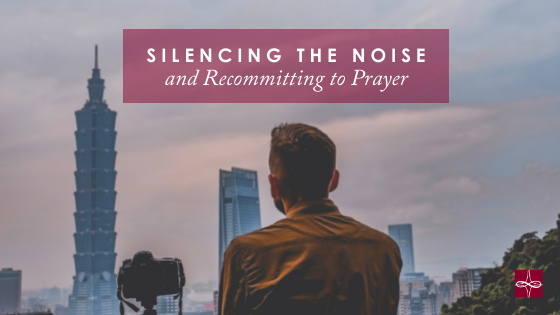

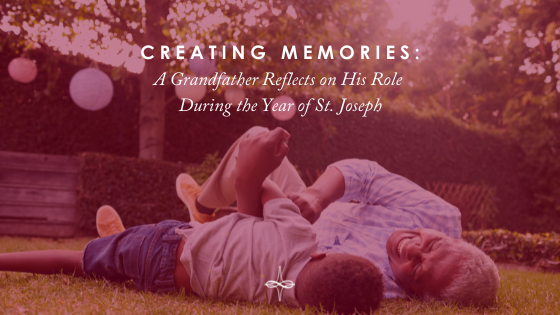
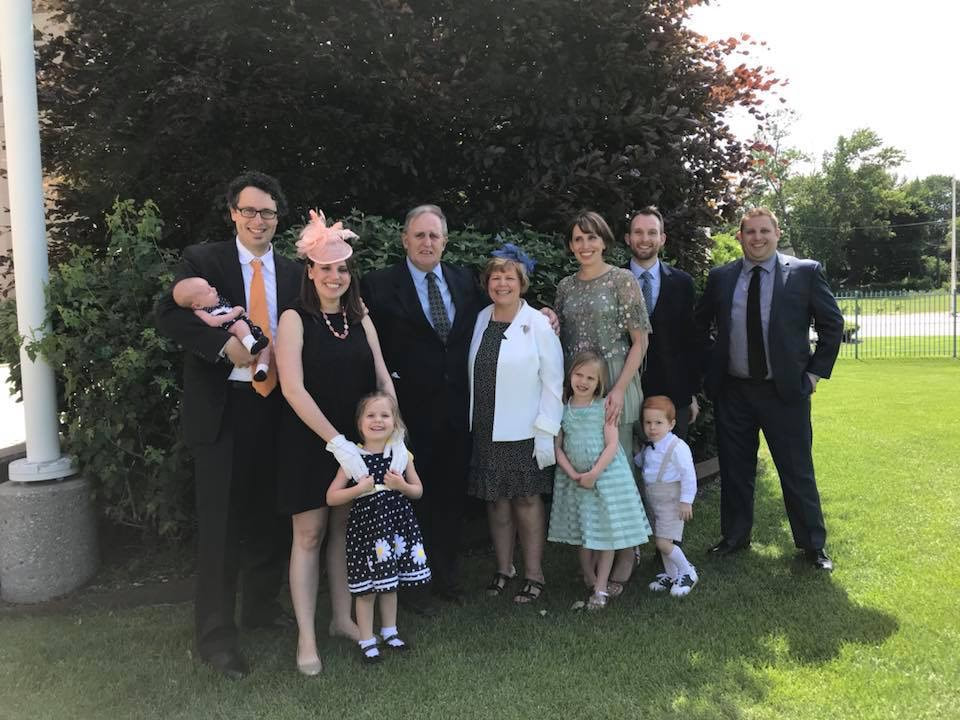






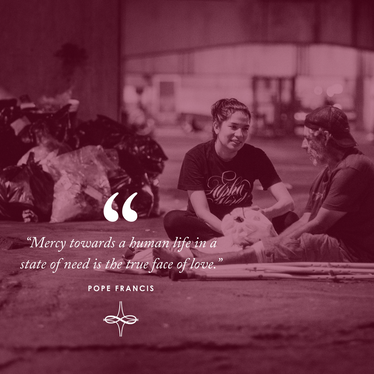
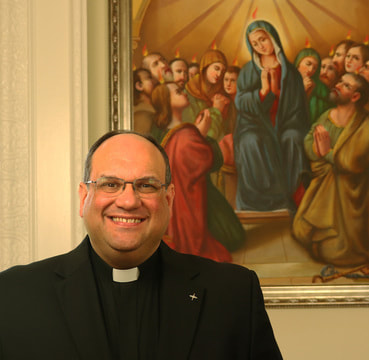
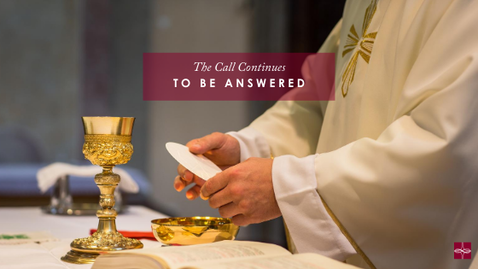

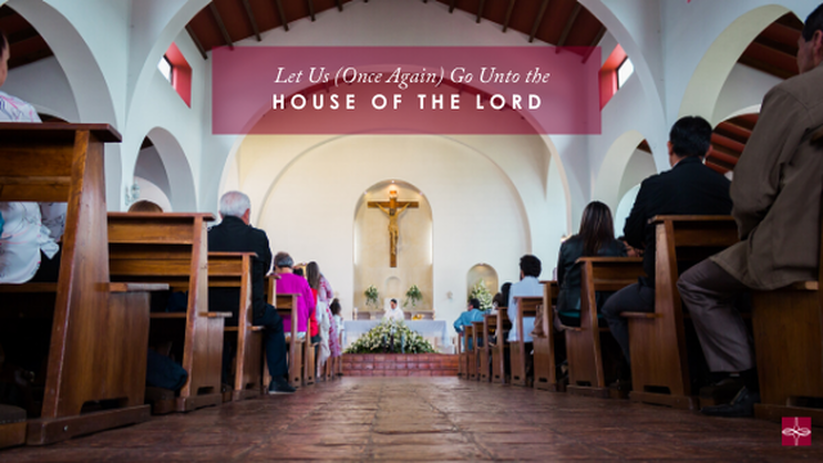
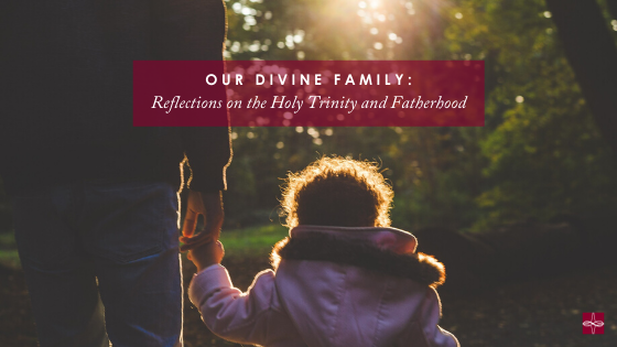
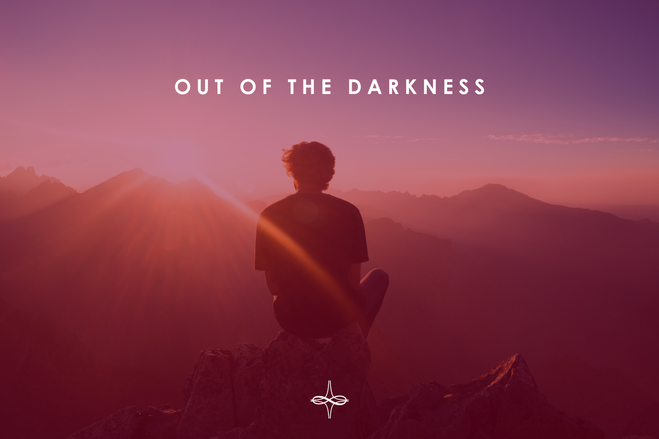
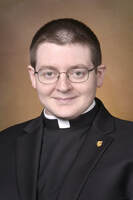
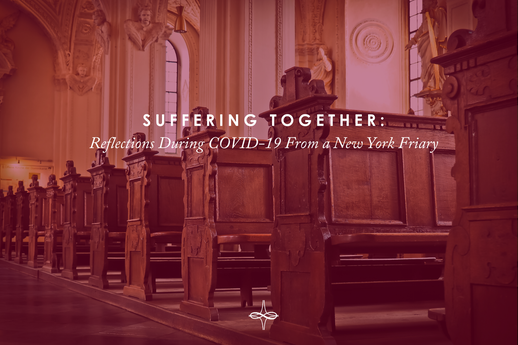
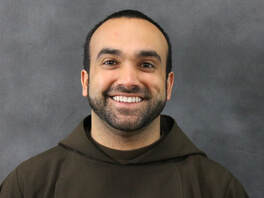
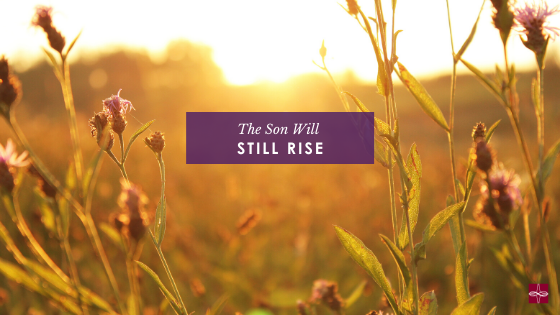

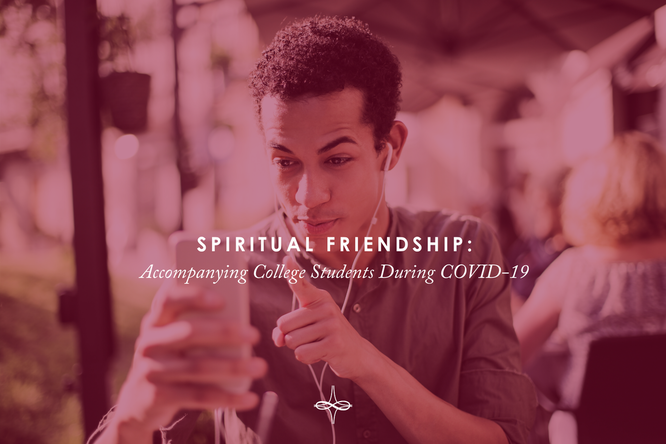
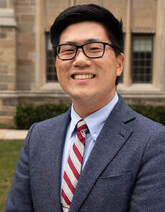
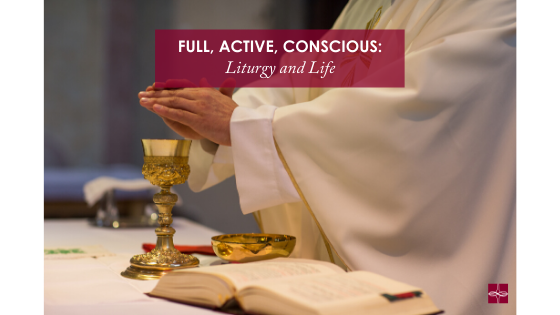

 RSS Feed
RSS Feed